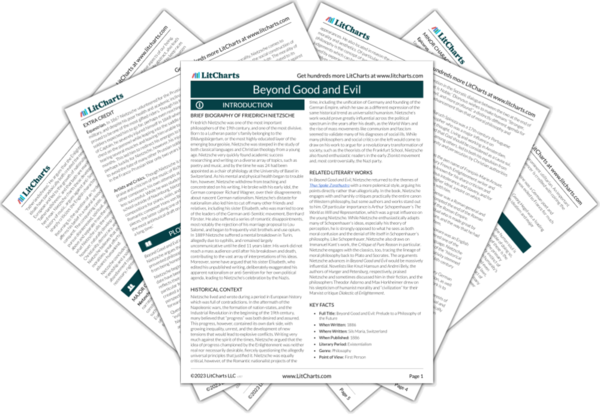Nietzsche articulates here the reasoning behind his assertion that fear—not love—drives morality. As morality, like religion, is (or should be) an instrument a community uses to defend itself, it is poised against potential threats. Both the development of morality into an
end rather than a
means, however, and the lack of external threats to the broadly construed community of modern, Christian Europe lead this fear to turn inward, initiating a self-destructive cycle powered by fear disguised as love.
